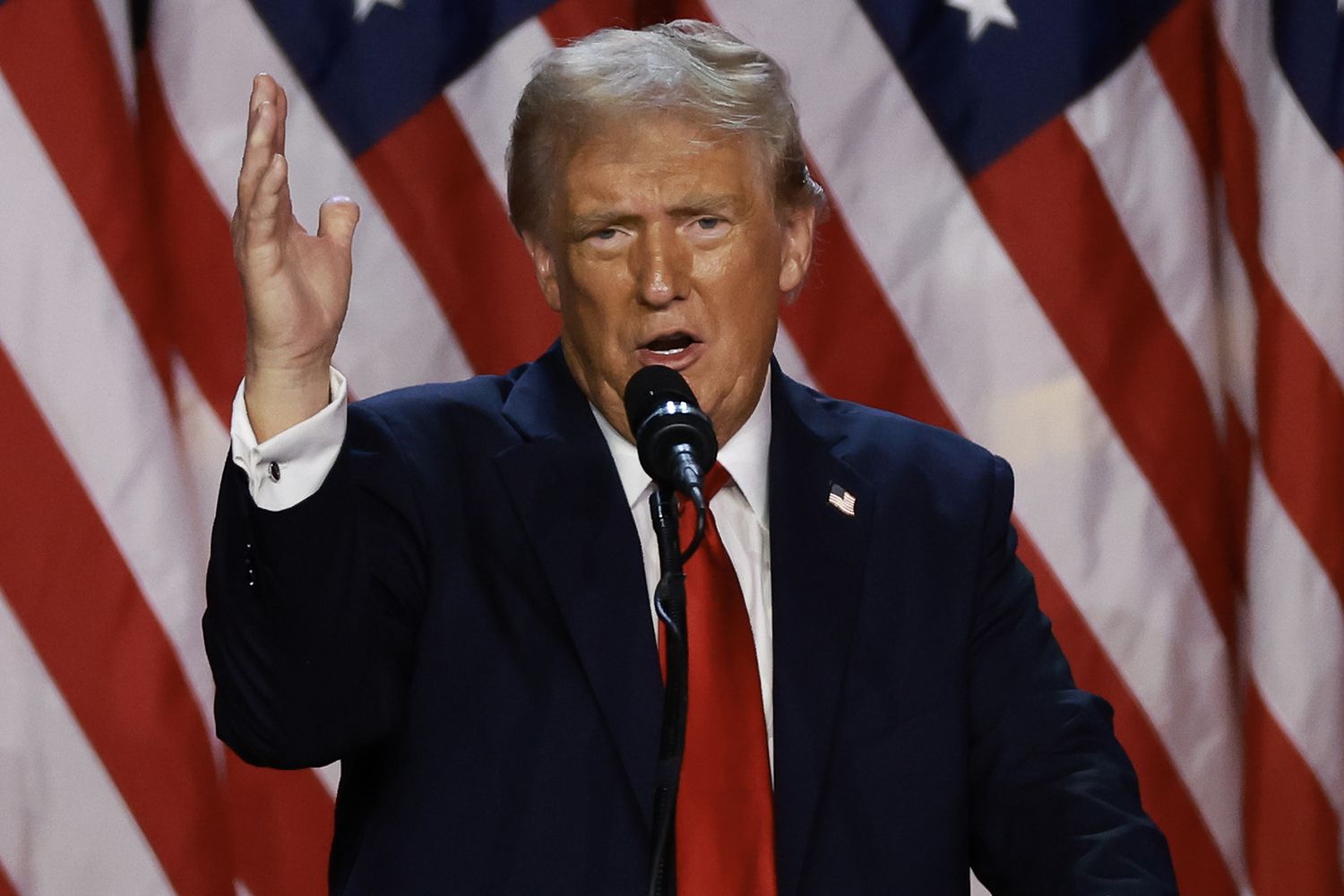Explore an in-depth analysis of Donald Trump’s life, presidency, and lasting impact on American politics and society. Discover his achievements, controversies, and legacy.
Introduction
Donald Trump, the 45th president of the United States, has been one of the most polarizing figures in modern American politics. His rise from a business tycoon to a political powerhouse reshaped the national discourse. Trump’s presidency marked a significant shift in U.S. politics, challenging traditional norms, policies, and practices. His time in office has left a lasting impact on American culture, economy, and global relations. The legacy of his administration continues to evoke strong opinions, making it essential to take a deeper look at his life, achievements, controversies, and influence on the country.
Early Life and Family Background
Born on June 14, 1946, in Queens, New York, Donald John Trump was raised in a family with strong ties to the real estate business. His father, Fred Trump, was a successful real estate developer who focused on residential properties in New York City’s outer boroughs. Donald Trump was one of five children and grew up in a wealthy and disciplined household. From an early age, he displayed a keen interest in business, something that would eventually shape his future. His father’s influence and work ethic were significant drivers in his eventual success.
Trump attended the New York Military Academy, where he excelled in leadership and sports, earning a reputation as a determined and ambitious young man. Following high school, he attended Fordham University and later transferred to the prestigious Wharton School at the University of Pennsylvania, graduating with a degree in economics in 1968. It was during this time that Trump began to develop a larger-than-life persona, which would later define his public image.
Early Business Career: Building the Trump Brand
After completing his education, Donald Trump joined his father’s business, the Trump Organization. Initially, his role was to manage the real estate holdings in Brooklyn and Queens, but his ambition quickly pushed him to look beyond. Trump’s first major project was the renovation of the Commodore Hotel in Manhattan, which he transformed into the Grand Hyatt. This marked the beginning of his transformation from a businessman to a national figure. The success of the Hyatt project helped establish his reputation as a skilled dealmaker and visionary.
In the 1980s, Trump expanded his portfolio significantly, acquiring prominent properties such as Trump Tower, a skyscraper located on Fifth Avenue in Manhattan. This move solidified his status as a high-profile real estate mogul, and he became a household name. Throughout the 1990s, Trump’s empire grew to include casinos, hotels, and golf courses, further enhancing his brand. Despite facing financial difficulties, including bankruptcies in the casino business, Trump managed to navigate these challenges with strategic moves, often emerging more powerful and influential.
Transition into Politics: A Political Outsider
Donald Trump’s entrance into politics came as a surprise to many. Despite being a public figure for decades, he had never previously shown serious interest in running for office. However, in 2015, Trump announced his candidacy for the 2016 presidential election as a Republican. His decision to run was met with skepticism, as many viewed him as an outsider with no political experience. Nevertheless, his bold rhetoric, outsider status, and unapologetic personality resonated with a large segment of the American electorate.
Trump’s campaign was unlike any other in modern history. He frequently made headlines with controversial statements, promises to “drain the swamp” of Washington, and proposals such as building a wall along the U.S.-Mexico border. His ability to dominate the media and energize voters, particularly those disillusioned with the political establishment, helped him secure the Republican nomination. Despite facing fierce competition and widespread criticism, Trump emerged as the Republican Party’s presidential candidate in 2016.
:max_bytes(150000):strip_icc():focal(731x258:733x260)/donald-trump-election-110624-5715-077bd4d582224b059ea080d8861955ea.jpg)
The 2016 Presidential Election: Shocking Victory
The 2016 presidential election was one of the most contentious and unpredictable in U.S. history. Donald Trump faced off against Democratic candidate Hillary Clinton, who was widely seen as the frontrunner. Throughout the campaign, Trump continued to challenge political norms and use unconventional tactics, including a heavy reliance on social media, particularly Twitter. His blunt and often inflammatory rhetoric made him a polarizing figure, but it also galvanized a substantial portion of the electorate.
On November 8, 2016, Trump shocked the world by defeating Clinton in the Electoral College, although Clinton won the popular vote. His victory marked the culmination of a long and improbable journey, and it signaled a dramatic shift in the political landscape of the United States. Trump’s success was seen as a repudiation of the political establishment and a victory for populism.
The Trump Presidency: A Controversial Four Years
Donald Trump’s time in office was marked by bold policy decisions, divisive rhetoric, and frequent controversies. One of the first actions of his presidency was the implementation of a travel ban targeting several predominantly Muslim countries, which sparked widespread protests and legal battles. Trump also focused on tax reform, pushing through the Tax Cuts and Jobs Act, which significantly lowered corporate tax rates and provided temporary tax cuts for individuals.
Another cornerstone of Trump’s presidency was his stance on immigration. He made good on his promise to build a border wall with Mexico, although funding for the project was a constant struggle. Trump’s administration also made efforts to reduce regulations, especially in the environmental sector, and withdrew the U.S. from the Paris Climate Agreement, citing concerns over economic impact.
Trump’s foreign policy was characterized by an “America First” approach, which included withdrawing from international agreements and focusing on bilateral deals. His administration renegotiated NAFTA, resulting in the United States-Mexico-Canada Agreement (USMCA). Trump also made headlines for his interactions with North Korean leader Kim Jong-un, becoming the first sitting U.S. president to meet with a North Korean leader.
Impeachment Trials: A Divisive Chapter
In 2019, Trump became the third U.S. president in history to be impeached by the House of Representatives. The impeachment was related to his dealings with Ukraine, specifically allegations that he pressured the Ukrainian government to investigate Joe Biden, a political rival. The House voted to impeach Trump along party lines, but the Senate acquitted him in early 2020, largely along party lines as well.
Despite his acquittal, the impeachment trials deepened the political divide in the country. Trump’s detractors viewed the proceedings as an opportunity to hold him accountable for his actions, while his supporters saw the impeachment as a partisan attack aimed at undermining his presidency. The events surrounding the impeachment highlighted the deep polarization in American politics during Trump’s time in office.
The COVID-19 Pandemic: A Test of Leadership
One of the defining challenges of Donald Trump’s presidency was the outbreak of the COVID-19 pandemic. The virus, which emerged in early 2020, caused widespread illness and death, as well as significant economic disruption. Trump’s handling of the pandemic was widely criticized, with many accusing him of downplaying the severity of the virus and offering mixed messages to the public.
Trump’s administration initially faced criticism for its slow response to the pandemic, but it later implemented Operation Warp Speed, a public-private partnership that accelerated the development and distribution of vaccines. Despite these efforts, Trump’s leadership during the pandemic remained a point of contention, and it became a key issue in the 2020 presidential election.
The 2020 Election: A Bitter Defeat
In 2020, Donald Trump faced off against former Vice President Joe Biden in a highly contentious election. The election was marked by the challenges posed by the COVID-19 pandemic, including a dramatic increase in mail-in voting. Trump and his supporters repeatedly claimed that the election was “stolen,” alleging widespread voter fraud. However, these claims were not substantiated by evidence, and courts across the country dismissed lawsuits challenging the results.
On November 7, 2020, Joe Biden was declared the winner of the election, securing the required 270 electoral votes. Trump and many of his supporters refused to accept the outcome, leading to protests and calls for investigations into alleged fraud. The defeat marked a bitter end to Trump’s presidency, and the contentious aftermath would set the stage for the events that followed.
The January 6th Capitol Riot: A Dark Day in American History
On January 6, 2021, a mob of Trump supporters stormed the U.S. Capitol building in an attempt to overturn the results of the 2020 election. The riot resulted in the deaths of several people, including law enforcement officers, and led to extensive damage to the Capitol. The events of that day were a shocking and violent culmination of the tensions that had been building throughout Trump’s presidency.
In response to the riot, the House of Representatives impeached Trump for a second time, charging him with “incitement of insurrection.” While Trump was acquitted in the Senate, the events of January 6 left a permanent stain on his legacy. The attack on the Capitol underscored the dangers of political polarization and the fragile nature of American democracy.
Trump’s Legacy: A Divided Nation
As Donald Trump’s presidency came to an end, the nation was deeply divided. His time in office had exposed the fractures in American society, with sharp political, racial, and cultural divides. Trump’s supporters viewed him as a champion of the people, someone who fought for the interests of everyday Americans and challenged the entrenched political establishment. On the other hand, his critics saw him as a dangerous and divisive figure whose actions undermined democratic norms and institutions.
Trump’s legacy continues to be debated, with some viewing his presidency as a time of necessary disruption and others seeing it as a dangerous era of instability. Whether one agrees or disagrees with his policies, there is no doubt that Donald Trump’s impact on American politics will be felt for years to come.

The Future of the Republican Party: Trump’s Influence
Donald Trump’s influence on the Republican Party cannot be overstated. Since leaving office, he has remained a dominant figure in American politics, with a large and loyal base of supporters. Many in the GOP view him as the leader of their movement, and his endorsement carries significant weight in Republican primaries and elections.
As of 2024, there is speculation about whether Trump will run for president again, with many of his supporters urging him to seek a second non-consecutive term. Regardless of whether he decides to run, Trump’s impact on the Republican Party will continue to shape its direction and policies for the foreseeable future.
Conclusion
Donald Trump’s time in office was marked by numerous achievements, controversies, and challenges. His presidency transformed the political landscape and altered the course of American history in ways that are still being felt today. Whether admired or criticized, Trump’s influence on American politics, culture, and society is undeniable. His legacy, though complicated, will remain a subject of intense debate for generations to come.
Read also: merry:nzor7pki8_a= christmas The Joy and Spirit of the Season






